Robert Halfon has unexpectedly resigned as skills, apprenticeships and higher education minister, saying in a letter to the Prime Minister: “I feel that it is time for me to step down at the forthcoming general election, and in doing so, to resign as a Minister in your Government”.
Elsewhere, Rishi Sunak has said the public could “safely assume” the pensions triple-lock will remain in place throughout the next Parliament.
Asked whether he thought that was affordable, the Prime Minister told the Liaison Committee: “I do, because the track record of the Government is that we make priorities.”
Follow i‘s live blog for updates.
Thank you for reading
We are going to leave this blog here for today; here’s a recap of what’s been going on:
- Rishi Sunak appeared before MPs in the Liaison Committee today, being questioned on several topics, including the economy, the NHS, Gaza and the Rwanda plan.
- The UK’s approach to China is “more robust” than most of its allies, the Prime Minister insisted following demands for a tougher line on Beijing.
- Mr Sunak was challenged on the Government’s reluctance to act on a number of Chinese-owned companies such as Bytedance, which owns TikTok. He rejected the suggestion from Liam Byrne, Labour MP and chairman of the Commons Business and Trade Committee, that while other nations acted to protect themselves against China, the UK was merely “thinking about it”.
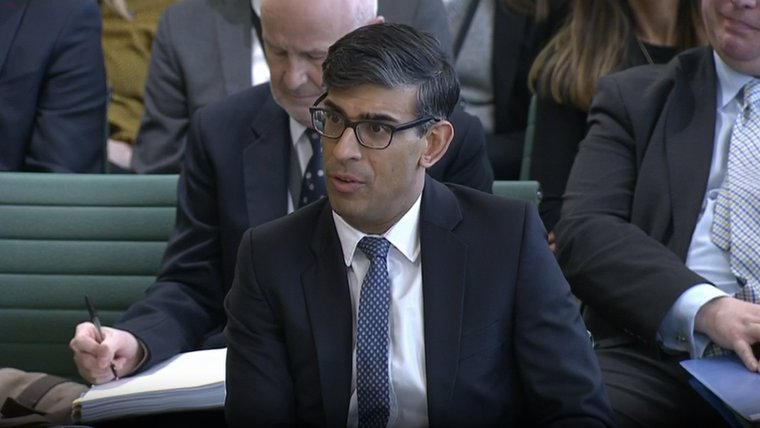
- Education Secretary Gillian Keegan told Times Radio on Tuesday morning that China was “obviously a security threat”, but Downing Street has been keen to play down the possibility that the Government could change its language on the country, which it currently calls as an “epoch-defining challenge”.
- Mr Sunak said the public could “safely assume” the pensions triple-lock will remain in place throughout the next Parliament.
- He denied there was a “crisis” in local government funding, but admitted there were “challenges”.
- Large numbers of Afghan citizens arriving in the UK via small boats does not necessarily mean existing refugee schemes are not working, the Prime Minister said.
- He said he was “very confident” the Rwanda asylum scheme is in compliance with the UK’s international obligations, in a heated exchange with Human Rights Committee chair and SNP MP Joanna Cherry.

- Robert Halfon has unexpectedly resigned as Skills, Apprenticeships and Higher Education Minister, saying in a letter to the Prime Minister: “I feel that it is time for me to step down at the forthcoming general election, and in doing so, to resign as a Minister in your Government”.
- James Heappey has confirmed his resignation as Armed Forces minister, saying he has “loved every minute” in the role.
The Tory MPs not standing at next election
Here is a list of the 63 Conservative MPs who have announced they are either standing down from Parliament or not seeking re-election in their current constituency at the next general election, as of 26 March 2024.
Some 58 Tory MPs have confirmed they will not be seeking re-election in any constituency and as such are retiring from the House of Commons.
A further five Tory MPs have indicated they will not be standing for re-election in their current constituency, but have not yet ruled out standing in another seat and have not confirmed to the PA news agency they are leaving Parliament for good. These are listed separately at the end.
These are the 58 Conservative MPs who are retiring from the House of Commons at the general election, listed alphabetically:
– Adam Afriyie, Windsor (MP since 2005; 2019 majority 20,079)
– Nickie Aiken, Cities of London & Westminster (MP since 2019; majority 3,953)
– Lucy Allan, Telford (MP since 2015; majority 10,941)
– Richard Bacon, South Norfolk (MP since 2001; majority 21,275)
– John Baron, Basildon & Billericay (MP since 2001; majority 20,412)
– Sir Paul Beresford, Mole Valley (MP since 1997; majority 12,041)
– Sir Graham Brady, Altrincham & Sale West (MP since 1997; majority 6,139)
– Steve Brine, Winchester (MP since 2010; majority 985)
– Lisa Cameron, East Kilbride, Strathaven & Lesmahagow (elected as SNP MP in 2015; 2019 majority 13,322; defected to Conservatives in 2023)
– Sir Bill Cash, Stone (previously MP for Stafford 1984-97, then Stone since 1997; majority 19,945)
– Chris Clarkson, Heywood & Middleton (MP since 2019; majority 663)
– Tracey Crouch, Chatham & Aylesford (MP since 2010; majority 18,540)
– Dehenna Davison, Bishop Auckland (MP since 2019; majority 7,962)
– Jonathan Djanogly, Huntingdon (MP since 2001; majority 19,383)
– Sir James Duddridge, Rochford & Southend East (MP since 2005; majority 12,286)
– Philip Dunne, Ludlow (MP since 2005; majority 23,648)
– George Eustice, Camborne & Redruth (MP since 2010; majority 8,700)
– Mike Freer, Finchley & Golders Green (MP since 2010; majority 6,562)
– Nick Gibb, Bognor Regis & Littlehampton (MP since 1997; majority 22,503)
– Jo Gideon, Stoke-on-Trent Central (MP since 2019; majority 670)
– Sir Robert Goodwill, Scarborough & Whitby (MP since 2005; majority 10,270)
– Chris Grayling, Epsom & Ewell (MP since 2001; majority 17,873)
– Robert Halfon, Harlow (MP since 2010; majority 14,063)
– Stephen Hammond, Wimbledon (MP since 2005; majority 628)
– Trudy Harrison, Copeland (MP since 2017; majority 5,842)
– Sir Oliver Heald, North East Hertfordshire (MP since 1992; majority 18,189)
– James Heappey, Wells (MP since 2015; majority 9,991)
– Gordon Henderson, Sittingbourne & Sheppey (MP since 2010; majority 24,479)
– John Howell, Henley (MP since 2008; majority 14,053)
– Alister Jack, Dumfries & Galloway (MP since 2017; majority 1,805)
– Sajid Javid, Bromsgrove (MP since 2010; majority 23,106)
– David Jones, Clwyd West (MP since 2005; majority 6,747)
– Sir Greg Knight, East Yorkshire (previously MP for Derby North 1983-97, then East Yorkshire since 2001; 2019 majority 22,787)
– Kwasi Kwarteng, Spelthorne (MP since 2010; majority 18,393)
– Pauline Latham, Mid-Derbyshire (MP since 2010; majority 15,385)
– Sir Brandon Lewis, Great Yarmouth (MP since 2010; majority 17,663)
– Theresa May, Maidenhead (MP since 1997; majority 18,846)
– Stephen McPartland, Stevenage (MP since 2010; majority 8,562)
– Sir Bob Neill, Bromley & Chislehurst (MP since 2006; majority 10,891)
– Matthew Offord, Hendon (MP since 2010; majority 4,230)
– Mark Pawsey, Rugby (MP since 2010; majority 13,447)
– Sir Mike Penning, Hemel Hempstead (MP since 2005; majority 14,563)
– Andrew Percy, Brigg & Goole (MP since 2010; majority 21,941)
– Will Quince, Colchester (MP since 2015; majority 9,423)
– Dominic Raab, Esher & Walton (MP since 2010; majority 2,743)
– Douglas Ross, Moray (MP since 2017; majority 513)
– Paul Scully, Sutton & Cheam (MP since 2015; majority 8,351)
– Sir Alok Sharma, Reading West (MP since 2010; majority 4,117)
– Chloe Smith, Norwich North (MP since 2009; majority 4,738)
– Henry Smith, Crawley (MP since 2010; majority 8,360)
– Royston Smith, Southampton Itchen (MP since 2015; majority 4,498)
– Sir Gary Streeter, Devon South West (previously MP for Plymouth Sutton 1992-97, then Devon South West since 1997; 2019 majority 21,430)
– Edward Timpson, Eddisbury (previously MP for Crewe & Nantwich 2008-2017, then Eddisbury since 2019; 2019 majority 18,443)
– Sir Charles Walker, Broxbourne (MP since 2005; majority 19,807)
– Robin Walker, Worcester (MP since 2010; majority 6,758)
– Ben Wallace, Wyre & Preston North (previously MP for Lancaster & Wyre 2005-10, then Wyre & Preston North since 2010; 2019 majority 16,781)
– Craig Whittaker, Calder Valley (MP since 2010; majority 5,774)
– William Wragg, Hazel Grove (MP since 2015; majority 4,423)
The following five Conservative MPs have indicated they will not be standing for re-election in their current constituency, but have not yet ruled out standing in another seat and have not confirmed to the PA news agency they are leaving Parliament for good:
– Stuart Andrew, Pudsey (MP since 2010; 2019 majority 3,517)
– Andy Carter, Warrington South (MP since 2019; majority 2,010)
– Kieran Mullan, Crewe & Nantwich (MP since 2019; majority 8,508)
– Nicola Richards, West Bromwich East (MP since 2019; majority 1,593)
– Jamie Wallis, Bridgend (MP since 2019; majority 1,157)
Fake reporters and death threats: China spy tactics from Hong Kong dissidents
Hong Kong activists who say they’ve been targeted by Chinese informants have shed a light on some of the tactics they claim are being used to monitor dissidents in the UK.
A westerner posing as a fake journalist attempted to infiltrate pro-democracy campaigners, according to one activist, Finn Lau, who has been physically attacked and received death threats online he believes are linked to China.
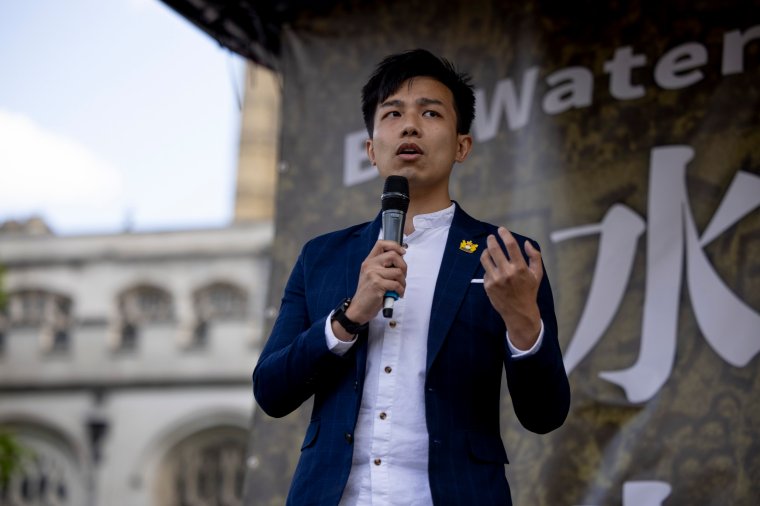
Mr Lau and Benedict Rogers, co-founder of campaign group Hong Kong Watch, also suspect hoax social media profiles using their names were set up to spread disinformation through China’s “50-Cent Army” of online trolls.
It comes as British intelligence services found Chinese spies are likely to use details stolen by hacking the elections watchdog to target dissidents and critics of Xi Jinping’s government in the UK.
Last year, i revealed Hong Kongers in the UK trying to join the British Army had reported being targeted by a suspected Chinese Communist Party (CCP) spy with activists who fled Chinese persecution now targeted on British soil by suspected Beijing agents or supporters.
Read the full story here.
Analysis: Sunak loses voice of so-called ‘blue collar’ Toryism in Rob Halfon
Rob Halfon has quit as Education Minister and will stand down at the next election, joining an exodus of Conservative MPs with the party on course for election defeat.
The Harlow MP became a leading voice of so-called “blue-collar” Toryism after being elected in 2010 when David Cameron became prime minister.
He was a regular thorn in the side of George Osborne and is widely credited with forcing the then-chancellor to freeze fuel duty to help “white van man”, a controversial policy that remains in place to this day.
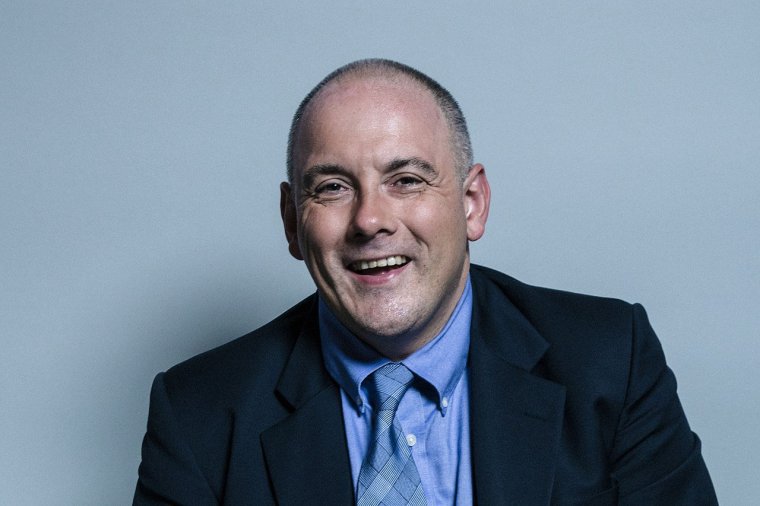
Mr Halfon said: “I feel that it is time for me to step down at the forthcoming general election, and in doing so, to resign as a minister in your Government”.
He said he had “done everything possible to work hard for Harlow” and has been “incredibly proud” to support Rishi Sunak as Prime Minister.
He thanked Education Secretary Gillian Keegan, who he called a “trailblazer in apprenticeships and boosting skills education.”
Mr Halfon concluded his resignation by telling Mr Sunak: “I believe that across the country there is a quiet admiration for your work ethic, integrity and ability to solve the complex problems faced by our country.”
UK is currently too ‘exposed’ to China to be able to properly sanction it, says Tory MP
Tory MP for the Isle of Wight Bob Seely has said that the UK is too “exposed” to China, and sanctions put in place should China try to invade Taiwan will “effectively collapse the global economy”.
He told Times Radio: “It’s not about accepting that we have to roll over and have our stomach tickled because China is so big and powerful. A lot of this is about minimising risk, about protecting ourselves.”
He said that China collects “large amounts” of its own people’s data, for “justified” reasons, but also because it wants to “spy on its own people to make rebellion or revolt or thinking bad things about the Communist regime in China increasingly impossible”.
“They want access to intellectual property; they want to steal this stuff because it just saves millions and years of research.
“They collect large amounts of data – or try to steal large amounts of data – because they’re building up target packs on individuals, potentially members of Parliament, potentially, more important, computer scientists working up in Cambridge on the latest AI […].
“It’s about whether we sell arms to Taiwan, it’s about the supply of rare minerals, it’s about our crucial supply lines for all the things that we need.
“If China starts a war in the South China sea and we put down sanctions, because we are now so exposed to China in so many elements of our life, we will effectively collapse ours and the global economy by putting sanctions on China should it invade Taiwan.
“What China wants above all is the ability to attack Taiwan and not have to pay the price.”
Robert Halfon’s resignation letter in full
Skills minister unexpectedly resigns
Robert Halfon has unexpectedly resigned as skills, apprenticeships and higher education minister, saying in a letter to the Prime Minister: “I feel that it is time for me to step down at the forthcoming general election, and in doing so, to resign as a Minister in your Government”.
James Heappey confirms his resignation, saying he has ‘loved every minute’ in role
James Heappey has confirmed his resignation as armed forces minister, saying he has “loved every minute” in the role.
The Tory MP for Wells posted on X: “I’ve loved every minute as MinAF in this incredible department. Our Armed Forces & MoD civil servants are the very best of us. Representing them in Parliament & around the world over last 4.5 years has been an amazing privilege.
“From the first COBR on Covid-19 to the most recent Ukraine Donor Contact Group last week in Ramstein via Kabul, Kyiv, Kosovo, Khartoum and the Southern Red Sea. It’s been an incredibly busy four-and-a-half years.
“But the work isn’t done. Ukraine needs our support now as much as ever. Perhaps even more so. Theirs is a fight for the future of Euro-Atlantic security and so we must continue to lead the world in the breadth & bravery of our support.
“My sincerest thanks to all who serve so brilliantly in our nation’s Armed Forces & to the families that stand behind them. We’re asking a lot of them at the moment – rightly so, the geo-political situation demands it – and we should never forget their sacrifice.”
Armed forces minister James Heappey resigns – reports
Armed forces minister James Heappey has resigned, according to sources, paving the way for Prime Minister Rishi Sunak to carry out a mini-reshuffle of his team.
Mr Heappey, the Conservative MP for Wells, Somerset, this month announced his intention to quit as an MP and to stand down as a minister before then.
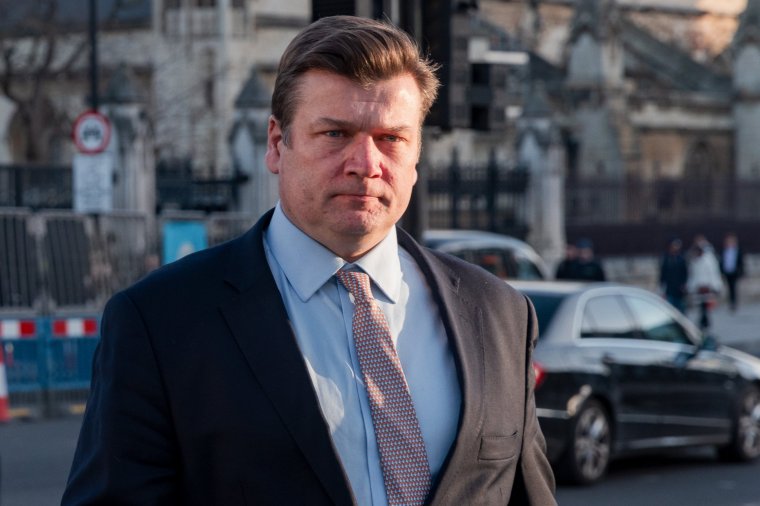
Analysis: The UK should expect retaliation after rebuking China for cyber-attack
A strongly worded statement by Deputy Prime Minister Oliver Dowden in the House of Commons is not the most devastating opening salvo imaginable – but the UK should brace for Chinese retaliation.
Mr Dowden announced on Monday that the Government was imposing sanctions on a Chinese technology company for carrying out a malicious cyber campaign targeting several MPs and the Electoral Commission, compromising the personal data of around 40 million voters.
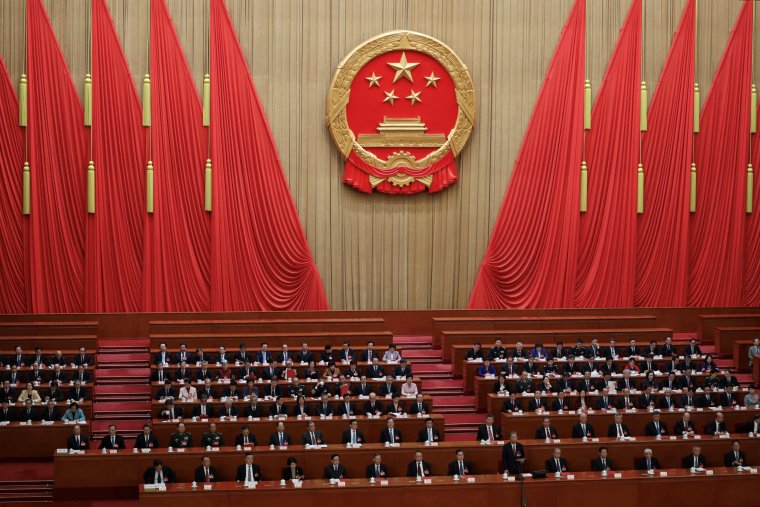
The measures mean that Wuhan Xiaoruizhi Science and Technology Company Ltd, and two Chinese citizens, Zhao Guangzong and Ni Gaobin, effectively cannot do business in or with the UK and will have their assets frozen.
To underscore the message, the Foreign Secretary, Lord Cameron, will summon China’s ambassador to the UK, Zheng Zeguang, “to account for China’s conduct in these incidents”.
It seems a long time since Cameron and President Xi Jinping were savouring a pint of pale ale at The Plough in Cadsden, during the Chinese leader’s 2015 state visit.
Read more from Eliot Wilson here.
‘Out for blood’: Local elections could see ‘ungovernable’ Tories turn on Sunak
The Conservatives are bracing themselves for electoral disaster on 2 May.
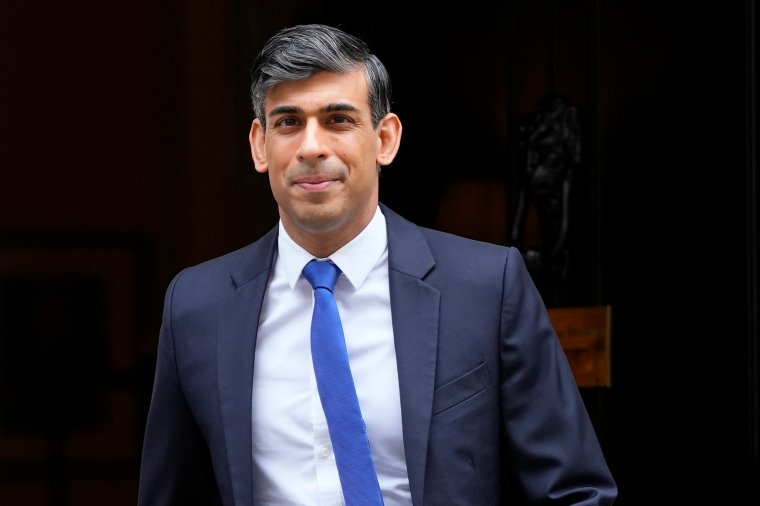
With more than 2,000 seats in 107 councils up for grabs, there is plenty at stake. The problem for the Tories is not just their currently poor standing in the national opinion polls, but the fact that the last time these seats were contested the party was in a very different place.
In the May 2021 local elections (delayed a year because of the pandemic), the Conservatives’ 2019 general election win was still a recent memory and the Tories were enjoying a opinion polling bounce due to the successful release of Covid vaccines.
This was reflected in a set of results that saw the Tories make significant local gains. Analysis, taking into account local differences in parties’ popularity, has found it was the equivalent of a 40 per cent national share of the vote, compared to just 30 per cent for Labour. And, on the same day, the party achieved the hugely symbolic victory of winning Hartlepool from the Labour Party for the first time in the seat’s history.
This time around, the tables are turned in the opinion polls, with Labour more than 20 points ahead on average.
Read more here.
Sunak reluctant to comment on Truss’ claim she was undermined as PM by ‘deep state’
Mr Sunak has been asked to respond to comments made by former prime minister Liz Truss, who said she was undermine in her leadership by the “deep state”.
Mr Sunak said: “I think that’s probably a question for her rather than me.”
Pressed on the question, he said: “Probably a question for her,” adding that he “probably wouldn’t tell you” if he was a member of the ‘deep state’.
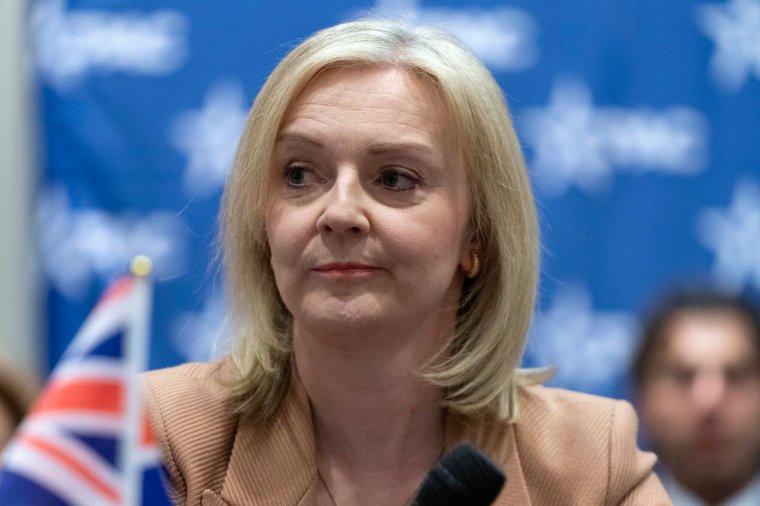
Sunak repeats claim that defence spending will reach 2.5% of GDP target ‘when conditions allow’
Rishi Sunak has repeated his Government’s claim that defence spending will reach its 2.5 per cent of GDP target “when the [economic] conditions allow”.
But he stopped short of pledging that the 2.5 per cent target would be in the Conservative Party general election manifesto, and would not put a date on when the target might be met.
Chancellor Jeremy Hunt was criticised for not ramping up money for the armed forces in his Budget this month.
The PM told the Liaison Committee: “It’s worth saying that defence spending is already on an upward trajectory and is already due to hit 2.3 per cent of GDP on defence spending.
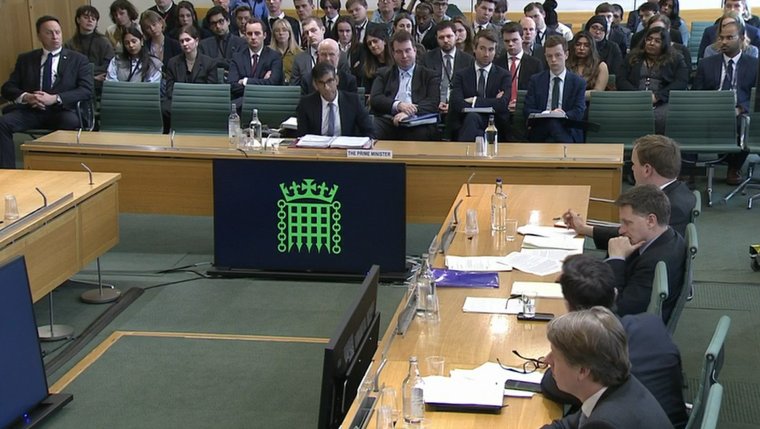
“The last year or so has made it clear that there is work to be done on defence industrial production, and that’s not a UK-only concern, that’s one concern shared by all our allies across Europe and Nato, which is why we have specifically put more money into munitions, into long-term contracts whether it’s NLAWs or Starstreak missiles.”
But he added: “We need to collectively up our game when it comes to defence industrial production. We are making the investments, we are signing the contracts and I think we can look forward to a very significant increase in the coming months and years.”
Asked by Liaison Committee chairman Sir Bernard Jenkin whether the 2.5 per cent target would be in the Tory election manifesto, Mr Sunak said: “We will try not to write too much of the manifesto in the here and now.”
UK’s approach to China is ‘more robust’ that most of its allies, Sunak says
The UK’s approach to China is “more robust” than most of its allies, the Prime Minister has said.
Rishi Sunak rejected the suggestion from Business and Trade Committee chairman Liam Byrne that where allies acted on China, the UK was merely “thinking about it,” following “ambiguous” answers from the Prime Minister on six different China-related case studies.
He said: “Our approach to China is undoubtedly more robust than, I’d say, most of our allies, in fact, actually.”
He pointed to European countries not removing Huawei equipment from their telecommunications networks, not placing similar restrictions on exports of sensitive technology to China and said the UK’s foreign investment regime was the most recently implemented and therefore the most robust, among other examples.
He added: “I am entirely confident that our approach to dealing with the risk that China poses is very much in line with our allies and in most cases goes further in protecting ourselves.”
Mr Byrne replied: “It clearly doesn’t.”
China represents ‘greatest state-based threat to our economic security,’ says Rishi Sunak
Rishi Sunak has told the Liaison Committee: “China represents the greatest state-based threat to our economic security we have seen that we just won’t stand for… It’s a country with fundamentally different values to ours, it’s behaving increasingly assertive abroad, authoritarian at home, that is a source of concern.
“But the track record, particularly over the last few years, is one where we have taken significant measures to protect ourselves.”
UK will continue to push Israel to allow more aid into Gaza, says Rishi Sunak
The UK will continue to push Israel to allow more aid into Gaza, particularly by land, the Prime Minister has said.
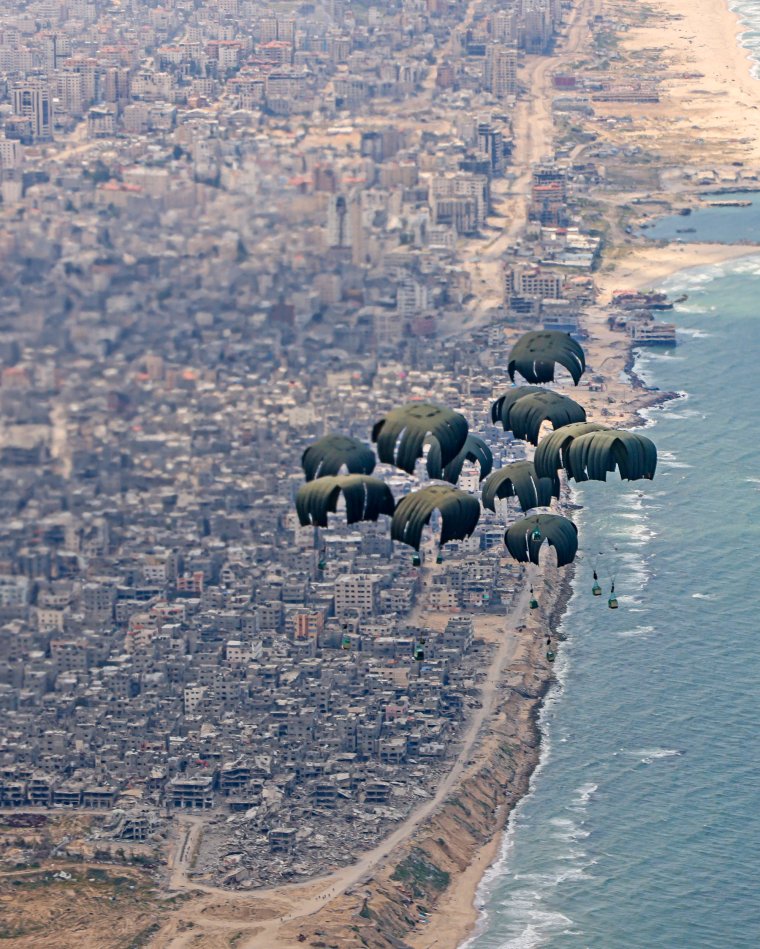
Rishi Sunak told MPs on the Commons Liaison Committee: “We will continue to do everything we can, both ask Israel at all levels to comply with international humanitarian law to improve the provision of humanitarian aid into Gaza, but also continue to call on Hamas and work with countries like Egypt and Qatar to unconditionally release the hostages.”
Asked about the UK airdropping food supplies into the territory, Mr Sunak agreed this was the least effective way of delivering aid.
“What we need are many more trucks per day,” he said, adding under 200 are going in each day.
“That’s not good enough. I’ve made that point repeatedly to Prime Minister Netanyahu as have our allies and we will continue to press for more land access.
“That is the best way to get more aid in quickly. But whilst that is not happening at the scale we would like it, I do think it is right to do extra aid via other corridors.”
Sunak says he is confident LGBTQ+ people will be safe in Rwanda
Mr Sunak was asked by Ms Cherry why he believes it is safe to send people belonging to the LGBTQ+ community to Rwanda when the east African country does not have protections in place to ensure the security of this group of people.
He said: “The constitution of Rwanda includes a broad prohibition of discrimination and it doesn’t criminalise or discriminate against sexual orientation in law or indeed in policy.
“We do have a legally binding treaty, which makes clear that obligations will be met in terms of treating people without discrimination as well.”
He added that the Safety of Rwanda Bill ensures that UK “decisionmakers will always be able to consider compelling evidence relating specifically to an individuals particular circumstances.”
Asked how he believes that the Rwanda scheme will act as a deterrent if the country is so safe, he said: “Because people will not be able to reside and remain in the UK, and what we’ve seen […] is that once we have a functioning returns agreement […] you see the arrivals drop, as they have done from Albania.”
Sunak calls Human Rights Committee chair’s questioning ‘unhelpful’ in tetchy exchange
Mr Sunak entered into a tetchy exchange with SNP MP Joanna Cherry, who asked him if he was “proud” that Tory MPs were prepared to vote against an amendment to the Safety of Rwanda Bill that would have ensured that Afghans who helped the British Army were not sent to Rwanda.
Mr Sunak said: “I really disagree with that characterisation. Given that we’ve just had all these debates in Parliament about opposition day debates and what they do to MPs” regarding “intimidation, I actually believe that characterising it like that is deeply unhelpful.”
Ms Cherry said that she “resent[s]” his “characterisation,” as she was asking a “perfectly reasonable question”.
“There are people coming to our shores who have previously aided and abetted our Armed Forces in Afghanistan, and you whipped your MPs against an amendment which would have prevented them being deported to Rwanda. I’m asking you whether you are proud of that policy.”
Mr Sunak said: “We have had a very clear obligation to make sure that we support those who aided us in Afghanistan, and we’re delivering on that.”
‘Bizarre’ to ask about comments made by Pakistani PM on Rwanda policy, Sunak says
Joanna Cherry, SNP MP and Human Rights Committee chair, has also asked Mr Sunak about the Government’s Rwanda policy, regarding concerns that it places the UK in breach of its human rights obligations and international law.
“We observed that other nations might be influenced by the way in which the UK treats its international obligations, and we pointed to the example of the interim Prime Minister of Pakistan, who has referred to the UK’s Rwanda policy in defence of his country’s decision to expel from Pakistan hundreds of thousands of Afghans who fled from the Taliban regime.
“Are you proud that he used your Rwanda policy to justify doing that?” she asked.
Mr Sunak said: “I’m obviously not responsible for the comments of a person in another country, so I think that’s a slightly bizarre thing to say.
“I’m very confident that our Rwanda scheme is in compliance with all our international obligations.”
Sunak denies that Afghan asylum scheme is not working
Large numbers of Afghan citizens arriving in the UK via small boats does not necessarily mean existing refugee schemes are not working, the Prime Minister has said.
Challenged by Home Affairs Committee chairwoman Dame Diana Johnson, who suggested the fact that 20 per cent of arrivals were from Afghanistan showed problems with the schemes, Rishi Sunak said: “That doesn’t mean the schemes are not working, it might just mean that there are many more people who would like to come to this country than we have the resources and the capacity to safely look after.”
He added: “There’s a limit to how many people we can take in this country, where we can house them and appropriately fund them.”
Asked by Dame Diana whether there was a “moral case” for supporting an amendment to the Safety of Rwanda Bill to stop those who helped British forces in Afghanistan being sent to Rwanda, Mr Sunak said: “We have an existing scheme. It’s brought thousands of people to the UK under three different streams.”



